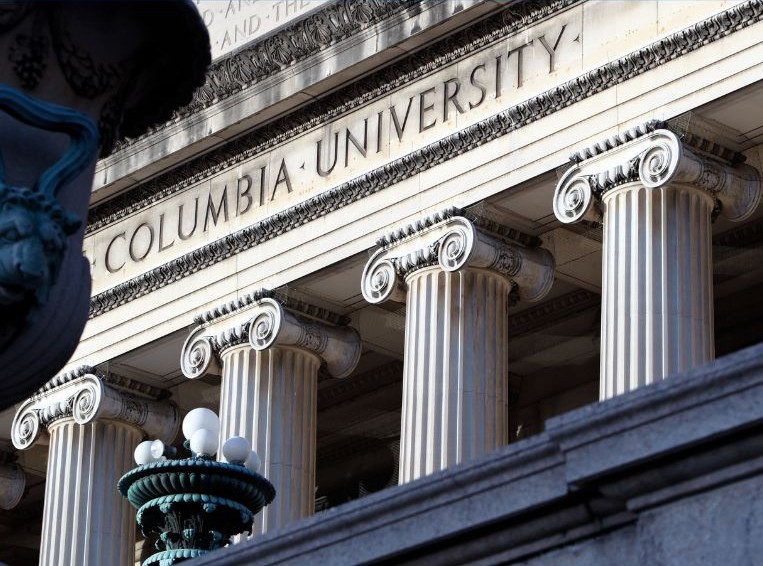Announcement From the University Regarding U.S. News and World Report’s Undergraduate Survey
Common Data Sets for 2022-23 and detailed overview of the Columbia undergraduate experience were posted last week.

Last week, Columbia posted Common Data Sets and supporting materials for our three undergraduate schools. The data sets include the broad array of statistical information related to class composition and the student experience that the university submits on an annual basis to outside entities, including the U.S. Department of Education and private college guides and ranking services.
Columbia decided last year to provide two Common Data Sets: one for Columbia College and Columbia Engineering, and one for Columbia General Studies. Columbia is unique in its three-school undergraduate structure, and this dual approach provides a better, fuller picture of our distinct programs.
The data sets, along with a detailed overview of the Columbia undergraduate experience across the three schools, can be found here.
Over the past year, we have had a chance to reflect on how our three undergraduate schools work with outside entities to disseminate data for prospective students. As many of you know, we undertook this effort after certain data in our 2021 U.S. News and World Report undergraduate submission were challenged. We conducted an exhaustive internal review, and where errors were confirmed, issued public corrections and made changes to the collection methodologies that led to the inaccuracies.
During this time, Columbia’s law, medical and nursing schools, along with many other undergraduate and professional schools across the country, determined not to submit data to U.S. News in their respective rankings’ categories. While each school articulated its own reasons for the decision, one common concern was that the rankings do not accurately capture the student experience or the priorities of the institution. We came to share that concern with respect to our undergraduate programs.
The college application process can be enormously complex, and we value efforts, whether public or private, to help applicants navigate it. We are especially encouraged by the emergence of new tools and resources that demonstrate outcomes, an area where the U.S. Department of Education has shown welcome leadership. To that end, the university applauds U.S. News’ recent announcement that it will change its undergraduate rankings methodology to focus on “success in graduating students from different backgrounds.”
Yet we remain concerned with the role that rankings have assumed in the undergraduate application process, both in the outsized influence they may play with prospective students, and in how they distill a university’s profile into a composite of data categories. Much is lost in this approach.
The combined population of our three schools, along with the presence of students from affiliate institutions, in classrooms and across many aspects of student life, is intrinsic to the undergraduate experience at Columbia. We are convinced that synthesizing data into a single U.S. News submission for its Best Colleges rankings does not adequately account for all of the factors that make our undergraduate programs exceptional. This conclusion informed our decision to take a dual approach to the Common Data Set. Finally, the impending Supreme Court decision on affirmative action has brought us to a historic moment that may well lead to a reassessment of admissions policies in ways we can’t even contemplate at this point.
Mindful of all these concerns, Columbia will not submit data to the U.S. News undergraduate rankings.
We are committed to sharing extensive information about our programs and hope that prospective applicants and their families will spend time looking at our Common Data Sets and the information that accompanies them. We will continue to refine and expand our approach, taking advantage of new technologies and opportunities as they come along. Consistent with this commitment, we will monitor the efforts of outside entities like U.S. News as we make future decisions about how to most effectively provide this information. We welcome input in developing ways to showcase Columbia’s distinct characteristics and allow prospective applicants to assess our three undergraduate programs based on their own unique needs and interests.
It is essential to note that virtually the same data that inform U.S. News and other rankings and college guides are available on the posted data sets and accompanying overviews. This material has been reviewed by a well-established, independent advisory firm to ensure accuracy.
But just as data are important, numbers alone could never convey the broader experience of undergraduate life at Columbia. There is no way to quantify the vibrancy of New York City, the richness of the university’s three distinct undergraduate programs, or the transformative intellectual experience that all Columbia undergraduates encounter in Core Curriculum classes. Columbia looks forward to continuing to help generations of students and their families get to know and understand this great university.
Mary C. Boyce, Provost
Josef Sorett, Dean of Columbia College and Vice President for Undergraduate Education
Shih-Fu Chang, Dean of Columbia Engineering and Morris A. and Alma Schapiro Professor of Engineering
Lisa Rosen-Metsch, Dean of Columbia School of General Studies